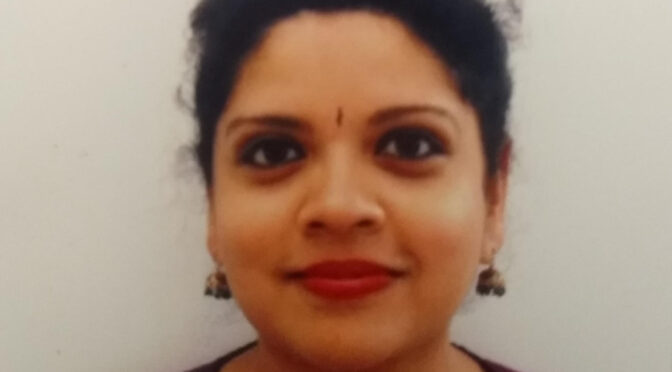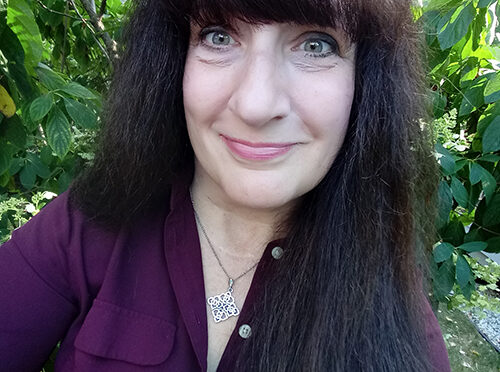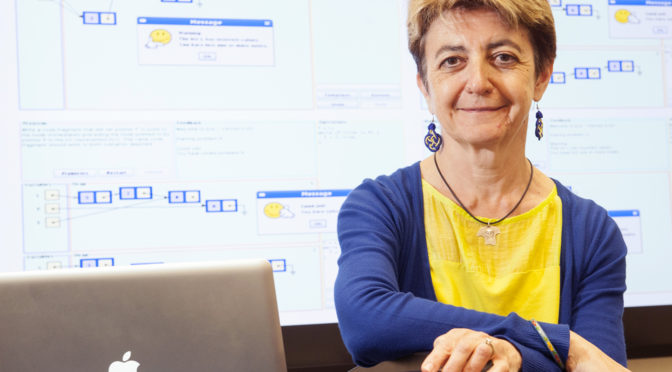by J. K. Wenderott
It is clear while interviewing Dr. Amrita A. Iyer that communicating is one of her passions. She exudes excitement as she discusses her job as a science writer at Tempus Labs in Chicago, IL, as well as her path to choosing a career in science communication. “In my job, I get to drive [scientific] papers forward so that they do see light and get published. That is the most satisfying part of my job.”
Amrita grew up in India and attended Vellore Institute of Technology for her Bachelors in Biotechnology and the Indian Institute of Technology (IIT) Madras for her Masters in Biological Sciences. During this time, she became well acquainted with genetics research, and continuing on this path, she joined Baylor College of Medicine for her PhD in Molecular & Human Genetics. It was while she was a PhD student, though, that she started to explore other interests. “Once I was done with my qualifying exams and those formalities, I started doing science communication as a stress-beating strategy,” she explains. Her PhD research was in a niche area – genetics of the inner ear – and being able to discuss it in more general terms with an audience and teach them something they did not previously know was exciting. “The response I was getting when people understood something new, that response made me feel good about my research.” This perspective-building (that can often be lost when being too close to a research topic), as well as the opportunities to speak at workshops and other events that started to snowball, pushed Amrita to seriously consider a career path in science communication. In 2021, when presented with the fork between continuing research and transitioning to a career in science communication, Amrita “took a leap of faith” and joined Tempus Labs as a science writer, which she considers now to be “one of the best decisions” she has made for herself.
Tempus Labs applies data and artificial intelligence to solve healthcare challenges for patients, and Amrita’s job as a science writer there consists of many roles. Beyond interfacing with marketing, medical affairs, and sales teams, she prepares, edits and reviews research communications including abstracts for conferences and manuscripts for publication. She is quick to note a key difference between her job now and her time as a graduate student: while she was working on one or two manuscripts or abstracts as a graduate student at the same time, now she handles more like eight abstracts and three manuscripts simultaneously. “There’s a lot of project management, as well, because each project is at a different stage,” she explains. Amrita believes the base skills required for her job – writing, editing, project management, organization, asking questions of researchers – were honed naturally during her time as a PhD student. When thinking about career advancement, Amrita brings up seeking out certifications through organizations like the American Medical Writers Association (AMWA), International Society for Medical Publication Professionals (ISMPP), and Board of Editors in the Life Sciences (BELS).
For those considering science writing, Amrita has several pieces of advice. For those in the early stages of their PhD, she recommends starting to build a portfolio as soon as possible by pursuing avenues to enhance your CV like serving as a teaching assistant for a medical writing class, checking LinkedIn for volunteer opportunities, and reviewing papers. Besides also seeking out these opportunities, those later on in their PhD can target certain certifications and credentials; for instance, BELS accepts PhD work as relevant experience, so students can apply and take the certification exam immediately. She also notes there are a variety of career branches in science communication. Within the industry, there are opportunities to work primarily on scientific publications, medical writing catered to pharmaceutical businesses, and regulatory writing. Other paths outside of industry can be found at non-profits, in academia as a grant writer, or through freelance work on a project-by-project basis.
Outside of her job, Amrita has many hobbies and interests like gardening, cooking, and writing fiction. Additionally, she has served in several mentorship capacities, including as a mentor for the AWIS-CAC Mentoring Circles program which consists of small intimate groups that meet over the summer to discuss mutual topics of interest. Speaking of her roles as a mentor and mentee, Amrita says, “It goes both ways. I learn a lot when I mentor. Mentees have so much to offer from the perspective of where they come from, what their background is, the way they ask questions, the way they understand things.” Her willingness to be a mentor is apparent beyond her commitment to these formal programs. She emphasized she is more than happy to hear from folks that have interest in science writing, would like her to review their resumes, or simply want to connect. You can reach Dr. Amrita A. Iyer by LinkedIn message.



